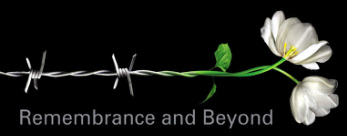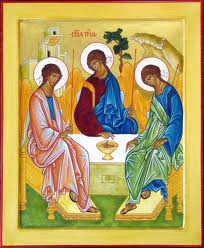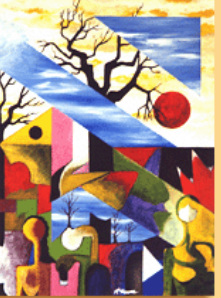
The day reminds us of the depth of brutality to which human beings can steep and the hatred with which we can look upon our fellow human beings and treat them as less than animals. While we remember the past there is much in the present to show us that this brutality is not over. The news tells us of atrocities in Syria, Sudan and other African countries as well as the Middle East. Films such as Twelve Years a Slave, Mandela, the Long Walk to Freedom, The Book Thief show us the inhumanity of ordinary men and women who love their families, show compassion to those they consider their own and live their lives in denial of the hatred and brutality that is in their heart. This is a lesson for all of us. If one human being is capable of such hatred we are all capable of it and must recognise this. Otherwise it could creep up on us and express itself in racism, discrimination, exclusion, rejection and hatred, all attitudes that need to be checked and prevented in our society.
There is of course the other side of the coin. There is the heroism of people such as Maximilian Kolbe who willingly went to the gas chamber in Auschwitz so that another could go free, the inner strength of people like Rabbi Hugo Gryn, Cantor Ernest Levi, Etty Hillesum, Victor Frankel and a host of others who, in the face of death, did not lose faith in the meaning and value of life. They show us that human beings are capable of reaching great heights of courage, selflessness, gratitude and love. If they can do it we can do it. We too have the strength if we but nurture it within ourselves.
The Scottish memorial event is organised by Interfaith Scotland and takes place tomorrow in Stirling. Two visitors will tell their stories.
Arn Chorn-Pond was only a boy when the brutal Khmer Rouge regime overran turned Cambodia into the “killing fields.” While most of Arn’s family were killed, Arn was kept alive to play propaganda songs on the flute for his captors and forced to fight against the Vietnamese when they invaded Cambodia in 1979. After seeing his friends killed on the front lines, he escaped to the jungle, eventually finding his way to a Thai refugee camp. Two years later, an American refugee worker adopted An and brought him to the United States. For Arn the journey to healing and wholeness has been a long one, brought about by his efforts to keep alive traditional Cambodian music and help young Cambodian people understand and love their culture.
Alfred Munzuer was separated from his family as a young child and brought up by Indonesian neighbours in Holland. He was a accepted as one of the family and hidden in the cellar whenever the Gestapo called. The kindness and courage of the family saved Alfred from the fate of his father and sisters who were murdered in concentration camps. His mother survived and Alfred was reunited with her after the war. Today he continues to work for holocaust education in the United States.
So we remember those we know and the millions we do not know. We remember the atrocities and the heroism, we remember the courage and the cowardice. We despair at continuing brutalities but hope for a better future, a future that we can influence by the love, compassion and respect with which we treat one another.






 RSS Feed
RSS Feed
